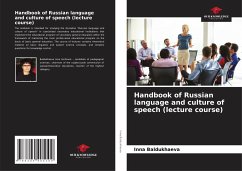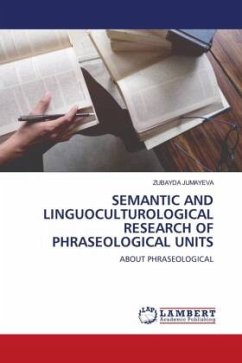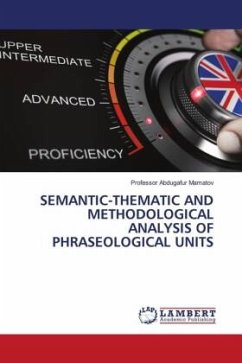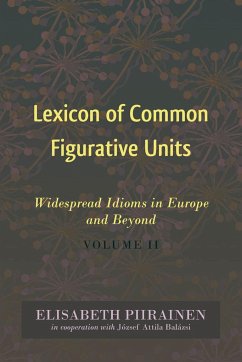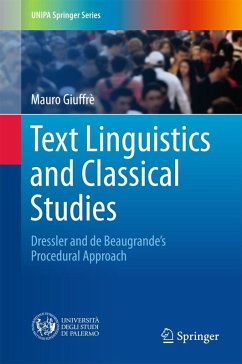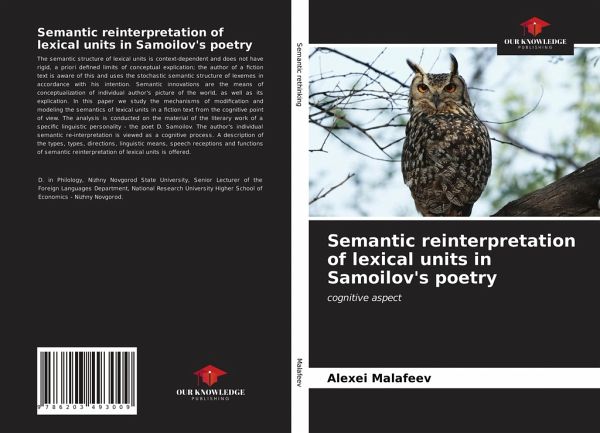
Semantic reinterpretation of lexical units in Samoilov's poetry
cognitive aspect
Versandkostenfrei!
Versandfertig in 6-10 Tagen
45,99 €
inkl. MwSt.

PAYBACK Punkte
23 °P sammeln!
The semantic structure of lexical units is context-dependent and does not have rigid, a priori defined limits of conceptual explication; the author of a fiction text is aware of this and uses the stochastic semantic structure of lexemes in accordance with his intention. Semantic innovations are the means of conceptualization of individual author's picture of the world, as well as its explication. In this paper we study the mechanisms of modification and modeling the semantics of lexical units in a fiction text from the cognitive point of view. The analysis is conducted on the material of the l...
The semantic structure of lexical units is context-dependent and does not have rigid, a priori defined limits of conceptual explication; the author of a fiction text is aware of this and uses the stochastic semantic structure of lexemes in accordance with his intention. Semantic innovations are the means of conceptualization of individual author's picture of the world, as well as its explication. In this paper we study the mechanisms of modification and modeling the semantics of lexical units in a fiction text from the cognitive point of view. The analysis is conducted on the material of the literary work of a specific linguistic personality - the poet D. Samoilov. The author's individual semantic re-interpretation is viewed as a cognitive process. A description of the types, types, directions, linguistic means, speech receptions and functions of semantic reinterpretation of lexical units is offered.



